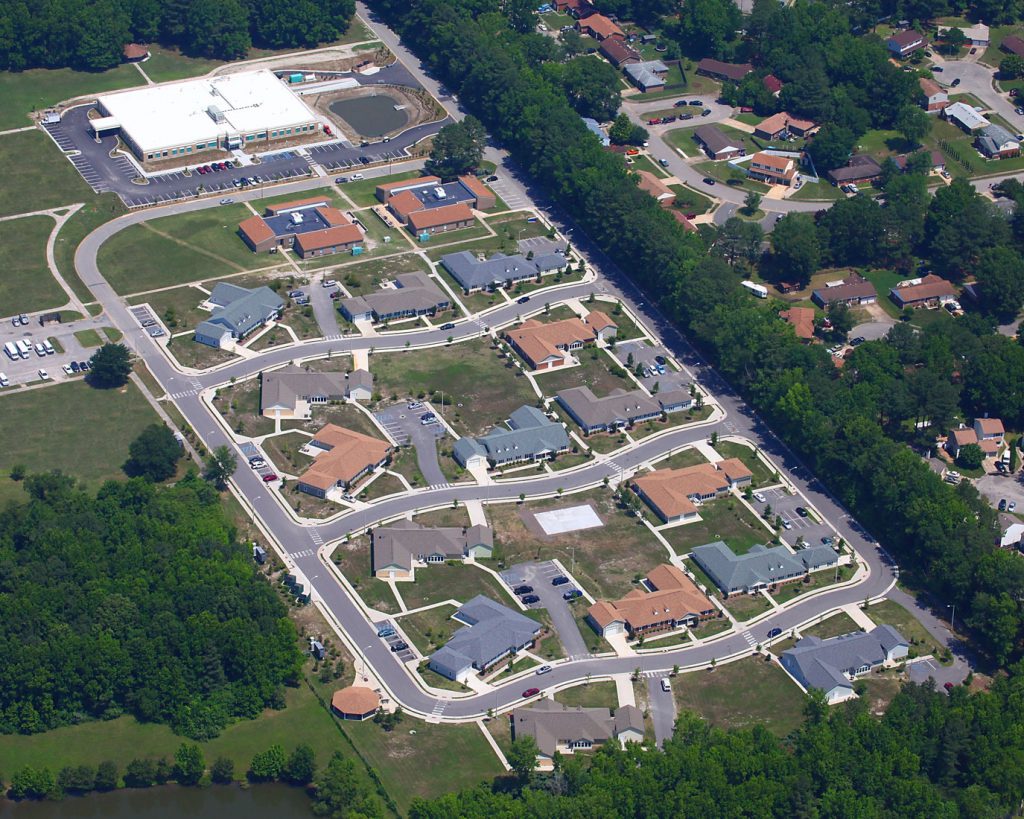
Since 1975, the Southeastern Virginia Training Center has been one of the service options in the DBHDS system of supports for persons with intellectual and developmental disabilities and their families.
When first built, SEVTC provided habilitation and support services to individuals with intellectual disabilities. Two hundred people in residence lived in twenty 8 and 10-bed cottages where supports and training were provided. Many of the residents planned to live in their home communities and SEVTC provided parent/family training and a quick transition back to community residences.
There has also been a transition from a focus on remediation of skill deficits and matching people to programs, to an emphasis on strengths and the adaptation of environments to support the interests and abilities of individuals. The impetus for this change has largely come from the individuals for whom we have been providing services. Individuals with disabilities do not consider themselves to be “broken” or in need of being “fixed.” Rather, they seek to live their lives in ways that are consistent with their own desires, preferences, and aspirations. During the last ten years, Virginia’s Department of Behavioral Health and Developmental Services (DBHDS) has engaged in a major transformation initiative to replace its historic emphasis on institutionally based care to one that promotes opportunities for individuals to fully participate and live in a community of their choice.
In January 2012, the governor announced that a settlement agreement had been reached with the U.S. Department of Justice (DOJ) and also shared that four of Virginia’s five training centers would close by 2020. SEVTC will remain open and has the capacity to support 85 individuals. SEVTC’s state of the art neighborhood opened in 2012 with fifteen homes, at that time, five homes each supporting 5 individuals and 10 homes supporting 6 individuals. At the same time, community provider capacity was expanded and many of the individuals living at SEVTC moved into community housing.
Many individuals currently residing at SEVTC have serious medical or behavioral complexities. Medical and behavioral service needs are projected to increase in the years to come as the population ages. In the future, SEVTC will support the citizens of Virginia most in need of highly structured medical and behavioral services.